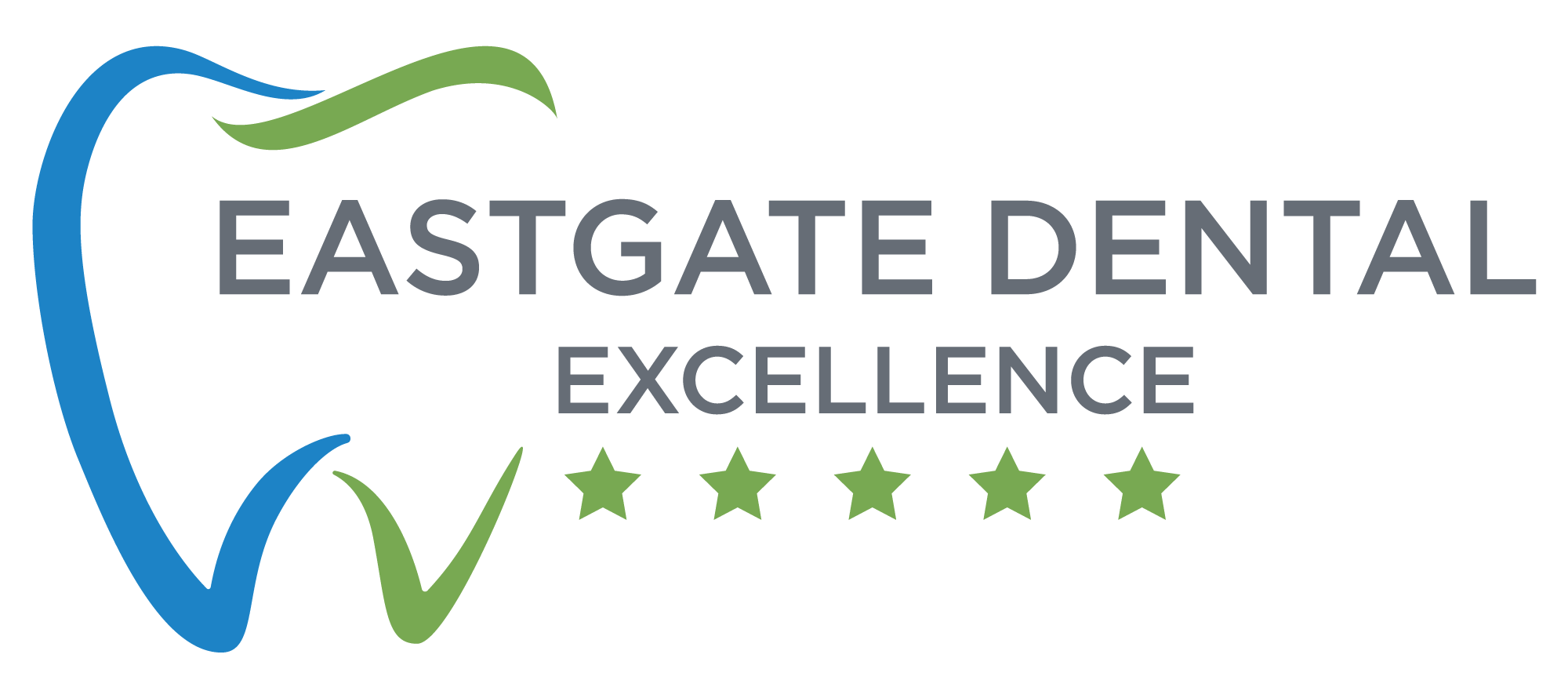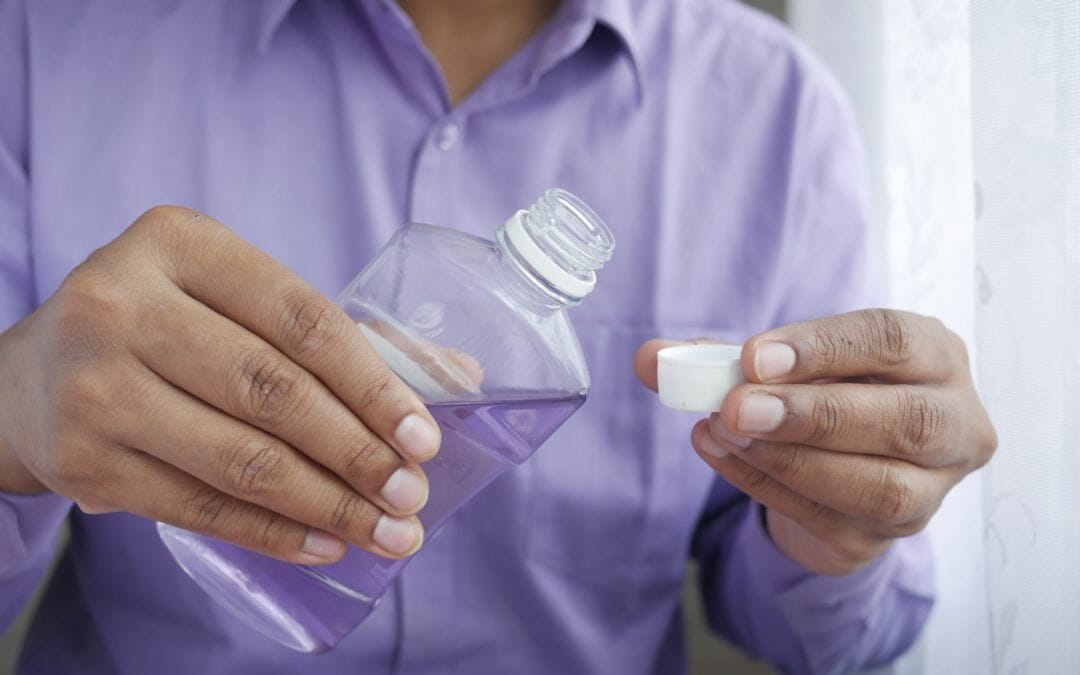Taking care of your smile doesn’t have to require an entire medicine cabinet full of tools and products. Yet there is quite a bit of value in traditional dental rinses and mouthwashes, especially those made today with specific oral healthcare needs in mind. Even if you have perfect dental health right now, rinsing once a day with the right mouthwash could further protect your smile. If you have certain conditions affecting your teeth or gums, medicated mouthwashes from our team here at Eastgate Dental could be an important part of your treatment plan.
What Does Mouthwash Do?
The main purpose of rinsing with mouthwash is to freshen the breath. Basic mouthwashes, including just plain water, remove food particles trapped against the gum tissue and between teeth. When you rinse vigorously for at least 30 seconds, you’re loosening bits of food that could create breath issues.
Mouthwash products containing alcohol also help reduce bacteria levels, immediately improving the breath. Most of these products also have another pleasant scent like mint to help freshen your breath further. However, some mouthwash products like those prescribed by one of our dentists offer more benefits than just control of halitosis.
Even some products sold at drugstores offer extra benefits thanks to special formulations. It’s all too easy to overlook mouthwash as a potential oral health booster since for so long it has primarily been sold for its breath-freshening power. The mouthwashes available today are much more diverse in both formulation and purpose than the alcohol-based products that dominated the shelves in the past.
What Are the Potential Benefits of Mouthwash?
For a healthy patient who brushes twice a day and flosses daily without skipping, mouthwash isn’t strictly necessary. Patients who sometimes miss a day or two of flossing often benefit from a mouthwash designed to help loosen tartar so it’s easier to remove.
If you’ve put off routine dental care for a while, these mouthwashes are also helpful in getting back to your oral health goals. The mechanical action of the rinsing process removes food particles, reducing the chance of decay between teeth in particular.
By using mouthwash before flossing, you may find it easier to get your teeth completely clean since the food and tartar will be loosened. Other products are designed for people with sensitive teeth. Using a desensitizing mouthwash can boost the effect already provided by a similar toothpaste.
Patients with gum disease are often prescribed special medicated mouthwashes to kill bacteria and tighten up the gum tissue around tooth roots. Other prescription rinses may aim to treat specific infections or maintain good overall oral health after a surgical procedure like dental implants.
What’s the Difference Between Over-the-Counter and Medicated Mouthwashes?
The over-the-counter mouthwash you pick up at the grocery store or drugstore is likely designed just for freshening your breath. It may also improve your overall oral health by killing bacteria as well, but these products aren’t designed to substitute for care from a dentist. Even products labeled as plaque-loosening or enamel-boosting will only offer a minor benefit from everyday use.
If you have a more serious dental health concern, you should see a dentist before choosing a mouthwash product to address it. Our dentists may recommend a prescription product that targets the specific concern or help guide you to the right over-the-counter mouthwash for you. Alcohol-based rinses in particular can interfere with some conditions or healing after gum surgery, so make sure to check with your dentist before continuing to use the same mouthwash after a new diagnosis or treatment.
Which Type of Mouthwash Should You Use?
Many types of mouthwash include fluoride to help remineralize your teeth and protect enamel. They’re fine to use on a daily basis, especially if your water supply does not contain fluoride. Antiseptic mouthwashes are among the most common over-the-counter products. Most are alcohol-based to kill the bacteria that cause bad breath. Some are too harsh for people with sensitive gums or oral tissue, so ask your dentist before using them. If you have an underlying cause for halitosis, treating it will work better than the daily use of an antiseptic mouthwash.
Alcohol-free mouthwashes can include fluoride or other ingredients designed to improve tooth and gum health. However, some are simply flavored or scented water. Make sure you’re not just paying extra for something you could replace with a cup of tap water with a drop of mint extract for the same benefits.
Should You Rinse with Water Too?
Fresh water is often one of the best mouthwashes, and it can be free or very inexpensive compared to other products. You can also use it as often as necessary throughout the day to flush out food particles, freshen your breath, and keep acids off your teeth.
Rinsing your mouth this way after each snack and meal can reduce tooth decay throughout your mouth without requiring another bottle around the bathroom sink. When you brush your teeth, make sure to rinse with water as well and not mouthwash. Mouthwashes should be used after or before brushing, depending on the type and its purpose.
If you still have questions about mouthwash and the right one for you, contact our team here at Eastgate Dental for more help. One of our dentists or dental hygienists can guide you to the right rinses and advise you on how to best use them based on your oral health.

